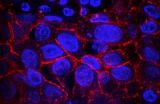(Press-News.org) September 24, 2012 - People often remark that people of a different race "all look alike." However, when we have trouble recognizing people from another race, it may actually have little to do with the other person's race. Instead, new research finds that that we can improve our memory of members of another race by identifying ourselves as part of the same group. Such identification could improve everything from race relations to eyewitness identification.
"One of the most robust phenomena in social perception is the finding that people are better at remembering people from their own race. This effect – called the own-race bias – is often interpreted as the consequence of perceptual expertise, whereby people spend more time with members of their own race and therefore have difficulty differentiating members of other races," says Jay Van Bavel of New York University, co-author of the new study published online last month in Personality and Social Psychology Bulletin. "Instead, we show that people are better at differentiating members of their own race because they simply pay more attention to who is in their own group, regardless of their race."
In three experiments, Van Bavel and colleague William Cunningham of the University of Toronto tested the own-race bias by assigning people to an arbitrary group – for example the "Moons" or the "Suns" – that included both white and black members. Participants watched a series of faces and had a few minutes to learn all the members of both their own group as well as another group. Researchers then asked participants to complete a short filler task to take their minds off the faces and then later administered a brief memory test to see if they could remember the people at the beginning of the study.
In the third experiment, there was a small twist: The researchers assigned people within each group the role of either a "soldier" or a "spy," telling them their goal was to serve the needs of the group. For spies, the specific goal was to "remain loyal to the Moons (or Suns) but your ultimate goal will be to serve the needs of your group by infiltrating the Suns (or Moons)."
In all three experiments, race had no effect on how well participants remembered members of their group versus the other group. In general, people remembered members of their own group more than the other group. This was especially true of people who identified strongly with their group. "The people in our studies seem to care more about their group membership than race – even when the groups are completely trivial," Van Bavel says.
The "spies" were the exception to this pattern. People assigned to the role of spy had excellent memory for both in-group and out-group members. "In other words, spies paid more attention to out-group members because it was part of their group identity," Van Bavel says. "If you can give people the right motivation, they will pay attention to the out-group."
The research shows that there are ways for us to improve our memory of people in other groups. "If people find that racial biases are interfering with their interactions with others, they might considering trying to finding a common group membership that they share," Van Bavel says. "For example, they might see themselves as 'Americans.'"
The research also has implications for legal contexts, such as police lineups ad eyewitness testimony, he says. Recent research has found that approximately 36% of wrongful convictions are due to erroneous cross-race eyewitness identification in which Caucasian witnesses misidentify minority defendants.
###The paper, "A social identity approach to person memory: Group membership, collective identification, and social role shape attention and memory," was published online on August 20, 2012, in Personality and Social Psychology Bulletin, a journal of the Society for Personality and Social Psychology (SPSP).
SPSP promotes scientific research that explores how people think, behave, feel, and interact. With more than 7,000 members, the Society is the largest organization of social and personality psychologists in the world. Follow us on Twitter: @SPSPnews
When they do not all look alike: Using identity to reduce own-race bias
2012-09-24
ELSE PRESS RELEASES FROM THIS DATE:
Little evidence supports medical treatment options for adolescents with autism
2012-09-24
Vanderbilt University researchers are reporting today that there is insufficient evidence to support the use of medical interventions in adolescents and young adults with autism.
Despite studies that show that many adolescents and young adults with autism spectrum disorders are being prescribed medications, there is almost no evidence to show whether these medications are helpful in this population, the researchers said.
These findings are featured in the Sept. 24 issue of Pediatrics.
"We need more research to be able to understand how to treat core symptoms of autism ...
Media coverage influences value of presidential debates for viewers, study finds
2012-09-24
COLUMBUS, Ohio -- The presidential debates offer viewers a lot of substance about the issues of the campaign -- but postdebate media coverage can undermine the value they have for voters, a new study suggests.
Results showed that postdebate coverage that focused on the debate as a competition led viewers to think less about policy issues. By comparison, coverage that focused on the substance of the discussion increased the likelihood that viewers would come away with specific thoughts about candidates' policy proposals.
The researchers conducted two different studies ...
Scientific discovery offers 'green' solution in fight against greenhouse gases
2012-09-24
A low-cost new material that could lead to innovative technologies to tackle global warming has been discovered by scientists at The University of Nottingham.
The porous material, named NOTT-300, has the potential to reduce fossil fuel emissions through the cheaper and more efficient capture of polluting gases such as carbon dioxide (CO2) and sulphur dioxide (SO2). The research, published in the scientific journal Nature Chemistry, demonstrates how the exciting properties of NOTT-300 could provide a greener alternative to existing solutions to adsorb CO2 which are expensive ...
AIDS patients face risk for esophageal, stomach cancers
2012-09-24
People with AIDS are at increased risk for developing esophageal and stomach carcinoma as well as non-Hodgkin lymphomas (NHLs), according to a new study in Gastroenterology, the official journal of the American Gastroenterological Association.
"People diagnosed with AIDS are living longer due to improved therapies. However, they remain at increased risk of developing a number of different cancers," said E. Christina Persson, PhD, of the National Cancer Institute and lead author of this study. "An elevated risk of esophageal and stomach cancers had been observed before, ...
Managing soil copper in crops irrigated with cattle footbath wastewater
2012-09-24
This press release is available in Spanish.
Getting a head start on stopping soil copper buildup will now be a bit easier, thanks to studies by U.S. Department of Agriculture (USDA) scientists. This research could help Pacific Northwest farmers develop long-term irrigation management strategies to protect crops from potentially dangerous soil copper levels.
Scientists with USDA's Agricultural Research Service (ARS) conducted a laboratory investigation to assess how copper levels in wastewater used for irrigation affected crop performance and soil microbial activities. ...
UNC Lineberger scientists lead cancer genome analysis of breast cancer
2012-09-24
A team of scientists with The Cancer Genome Atlas program reports their genetic characterization of 800 breast tumors, including finding some of the genetic causes of the most common forms of breast cancer, providing clues for new therapeutic targets, and identifying a molecular similarity between one sub-type of breast cancer and ovarian cancer.
Their findings, which offer a more comprehensive understanding of the mechanisms behind each sub-type of breast cancer, are reported in the September 23, 2012 online edition of the journal Nature.
The researchers, including ...
Stratosphere targets deep sea to shape climate
2012-09-24
SALT LAKE CITY, Sept. 23, 2012 – A University of Utah study suggests something amazing: Periodic changes in winds 15 to 30 miles high in the stratosphere influence the seas by striking a vulnerable "Achilles heel" in the North Atlantic and changing mile-deep ocean circulation patterns, which in turn affect Earth's climate.
"We found evidence that what happens in the stratosphere matters for the ocean circulation and therefore for climate," says Thomas Reichler, senior author of the study published online Sunday, Sept. 23 in the journal Nature Geoscience.
Scientists ...
Constraining world trade is unlikely to help the climate
2012-09-24
Instead, researchers were able to pin down a number of factors explaining the pronounced imbalances between emission importers and exporters, the US current account deficit being one of them. Their conclusion: interventions in world trade, like CO2 tariffs, would probably have only a small impact on global emissions.
Steadily growing world trade leads – as earlier research has shown – to a substantial transfer of CO2 from one country to another. The traded goods effectively contain the greenhouse gas, as it originates from the energy used during their production. "Typically, ...
Study reveals genomic similarities between breast cancer and ovarian cancers
2012-09-24
One subtype of breast cancer shares many genetic features with high-grade serous ovarian cancer, a cancer that is very difficult to treat, according to researchers supported by the National Institutes of Health. The findings suggest that the two cancers are of similar molecular origin, which may facilitate the comparison of therapeutic data for subtypes of breast and ovarian cancers.
The researchers, using data generated as part of The Cancer Genome Atlas (TCGA), described new insights into the four standard molecular subtypes based on a comprehensive characterization ...
Mayo researchers develop editing toolkit for customizing zebrafish genomes
2012-09-24
ROCHESTER, Minn. -- Mayo Clinic researchers and an international team of scientists have developed a highly-efficient means of editing zebrafish genomes for research purposes, eliminating a bottleneck that has stymied biomedical scientists from using the fish as a model for human disease. The details appear online today in the journal Nature.
For many researchers, zebrafish are becoming the model of choice for genetic studies. However, the inability to efficiently target genetic modifications has delayed their use by some. The Mayo team used an improved variant of artificial ...

